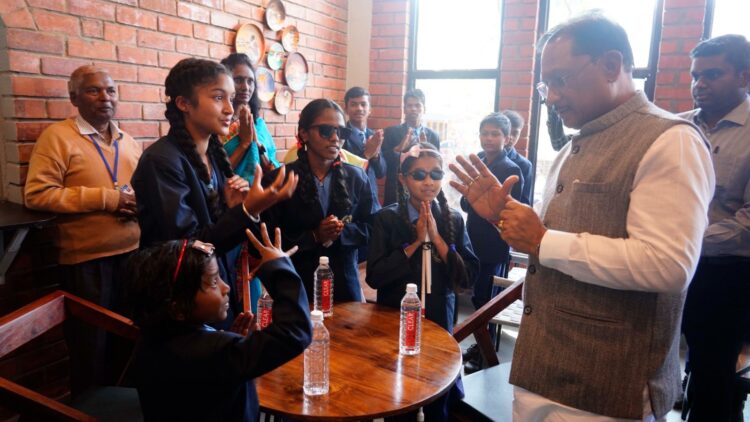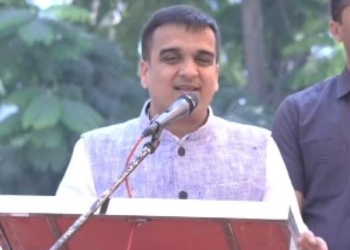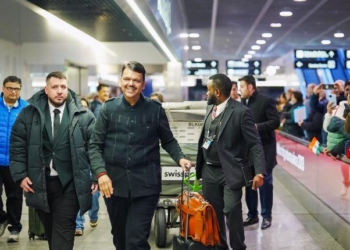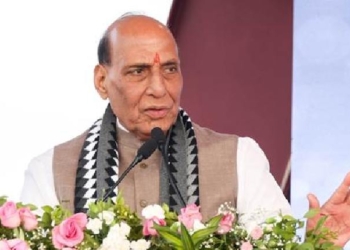Raipur/Jagdalpur: In the heart of Bastar’s once-fearful forests, where the crack of gunfire once echoed louder than birdsong, a gentle clink of coffee cups now signals a quiet revolution.
Today, Chhattisgarh Chief Minister Vishnu Deo Sai cut the ribbon on “Pandum Cafe,” a modest eatery tucked inside the Police Lines complex here – but for its staff, it’s nothing short of a second chance at life.
Fagni, a soft-spoken mother from Narayanpur, wipes down a table with a steady hand, her eyes lighting up as she recalls the day she traded the weight of an insurgent’s rucksack for an apron.
“We lived in darkness back then,” she says. Once caught in the crossfire of Naxalite violence, Fagni is among the cafe’s pioneers – survivors and surrendered militants who’ve chosen peace over powder kegs.
“Today, I serve people with a smile. It’s like being born again. Coffee instead of gunpowder… and the money I earn? It’s clean, it’s mine, and it brings real peace.”
Beside her, Pushpa Thakur from Sukma stirs a pot of aromatic filter coffee. A decade ago, dreams of a stable home for her children felt as distant as the cities she’d only heard of in whispers.
“We couldn’t even imagine giving our families dignity,” she shares, glancing at a faded photo of her kids pinned to the cafe’s bulletin board.
“Now, every rupee I earn here is a step toward their future. This place – it’s not just a job; it’s freedom.”
Chief Minister Vishnu Deo Sai wrote on his X handle about the café after inaugurating it, “Pandum Cafe: A quiet miracle rising from Bastar’s battle-scarred soil. Where gunfire once silenced dreams, the aroma of fresh coffee now drifts in the air. Today, in the heart of Jagdalpur, a new chapter begins—one written not in fear, but in hope. Here, former Naxal cadres and the families they once terrified stand shoulder to shoulder, wearing aprons instead of anger, serving smiles instead of slogans.”
This little cafe is proof: when resolve meets redemption, even the darkest corners of Bastar can glow with dignity, peace, and the promise of tomorrow, he said while inaugurating it.
The cafe’s name, “Pandum,” evokes the resilient spirit of Bastar’s tribal heartland, but its true magic lies in the stories behind the counter. Birendra Thakur, a burly former cadre with calluses from both rifles and making coffee, nods as he recounts his unlikely pivot.
“I thought coming back would be impossible – the stares, the shame. But the police and administration trained us, trusted us. Hygiene classes, customer chats, and even how to dream big as entrepreneurs. And working side-by-side with victims like Ashmati here? It’s our way of saying sorry, of building bridges where walls once stood.”
Ashmati, from Bastar, was a victim of the very violence that scarred her community. She once viewed ex-militants with suspicion.
“It wasn’t easy at first,” she admits. “But seeing them sweat through training, hearing their regrets – it healed something in me too. We’re not enemies anymore; we’re family, flipping rotis and futures together.”
Premila Baghel, the fifth in this tight-knit crew, oversees the till with quiet pride.
“The Chief Minister sat with us today, listened like we mattered. His words weren’t just politics – they felt like permission to hope,” she said.
Chief Minister Sai, during a heartfelt chat over chai, didn’t mince words. “Pandum Cafe isn’t just bricks and beans,” he said.
“It’s a beacon – hope for the hopeless, progress in the shadows of Naxalism. These young souls, once lost to violence, are now architects of peace. With our support, Bastar is rewriting its story, one cup at a time.”
Backed by rigorous training in everything from food safety to smiling through rush hours, the cafe’s launch marks a bold government push for rehabilitation.
It’s part of a larger wave washing away Maoist strongholds, offering not pity, but purpose – sustainable jobs that heal divides and stitch communities whole.
“This isn’t survival. This is living,” Fagni said.
In Bastar, where peace was once a fragile truce, Pandum Cafe brews something stronger.
(IANS)
















